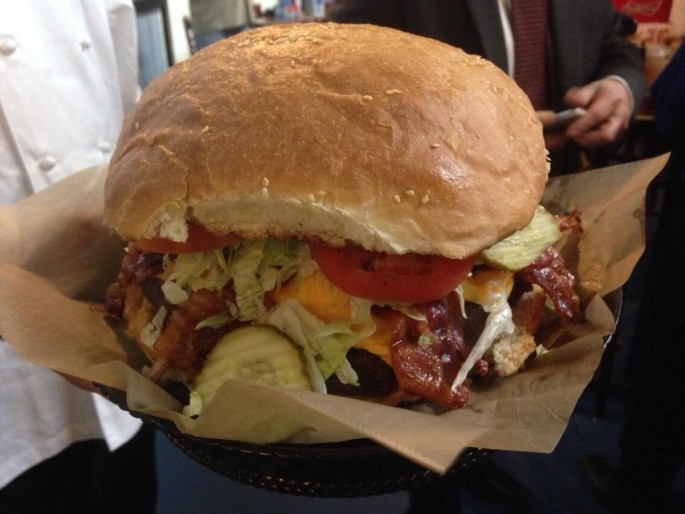New studies that included McDonald's, Burger king, Chick-Fil-A, and Starbucks create some big questions about whether calorie counting labels at fast food restaurants, diners, and eateries help customers to battle obesity, high blood pressure, type 2 diabetes, heart disease, and other health conditions and diseases, by improving their eating habits. The findings were released before nationwide rules for calorie-tracking restaurant chain menus will launch next year.
The two studies were conducted by New York University's (NYU) Langone Medical Center and John Hopkins University. They were published in the journal Health Affairs.
Six years ago New York City (NYC) became the first one in the nation to require posted calorie counts. Researchers share that seeing caloric values of menu items did not automatically cause customers to choose lower-calorie foods.
NYU researchers conducted the study by using receipts and surveys from almost 7,700 customers of various fast food restaurant chains, according to WebMD. They included McDonald's, Burger King, Wendy's, and KFC. The NYC calorie counts averaged between 804 and 839 per meal, and were a little lower in New Jersey.
Researchers learned that the calorie count labels had no effect. They did not change the calories bought or the number of visits to the fast food restaurants.
A little over one-third of customers noticed the calorie counts on fast food restaurants' menus last year, while around half did in 2008. In addition, just 9 percent used them to order lighter meals.
The second study showed that menu labeling might affect items offered more than items purchased. It compared caloric information from 66 big United States chains, with small restaurants that chose to offer calorie counts.
The opt-in restaurants averaged almost 140 fewer calories per menu item, according to CBS News. Study co-author Julia Wolfson shared that such restaurants include more healthy options on their menus.
Here is a recap of the 2008 NYC calorie count-posting law:



























